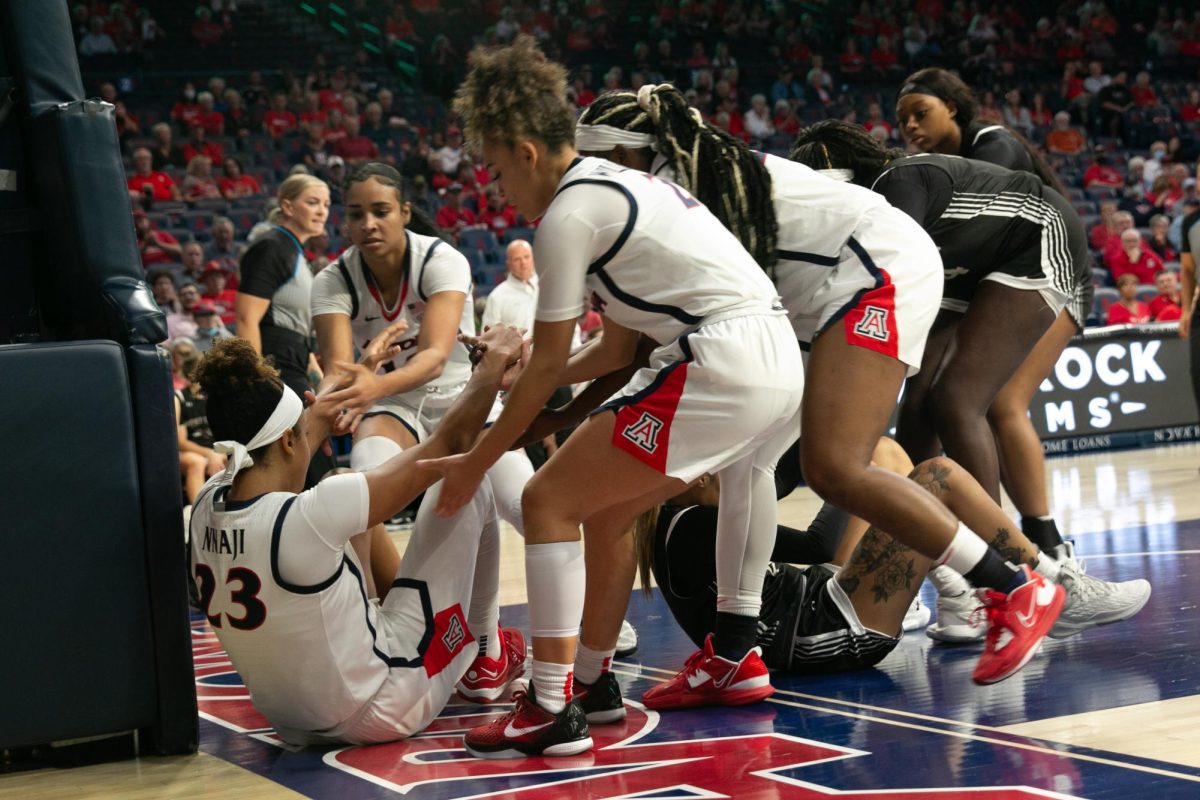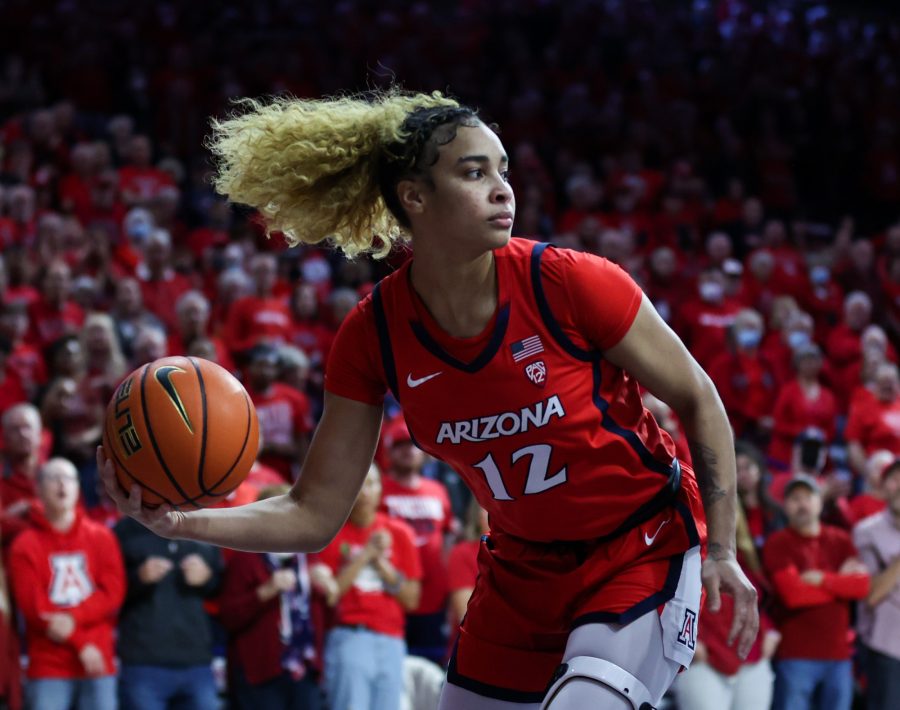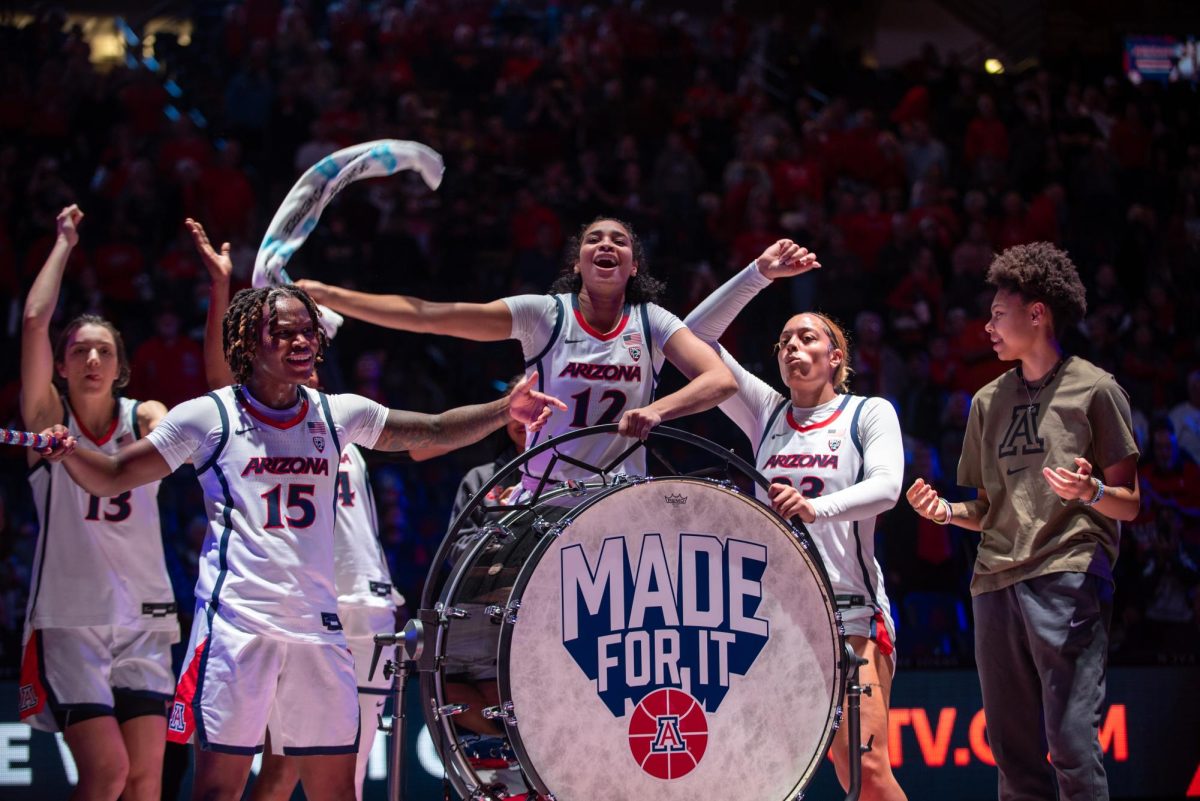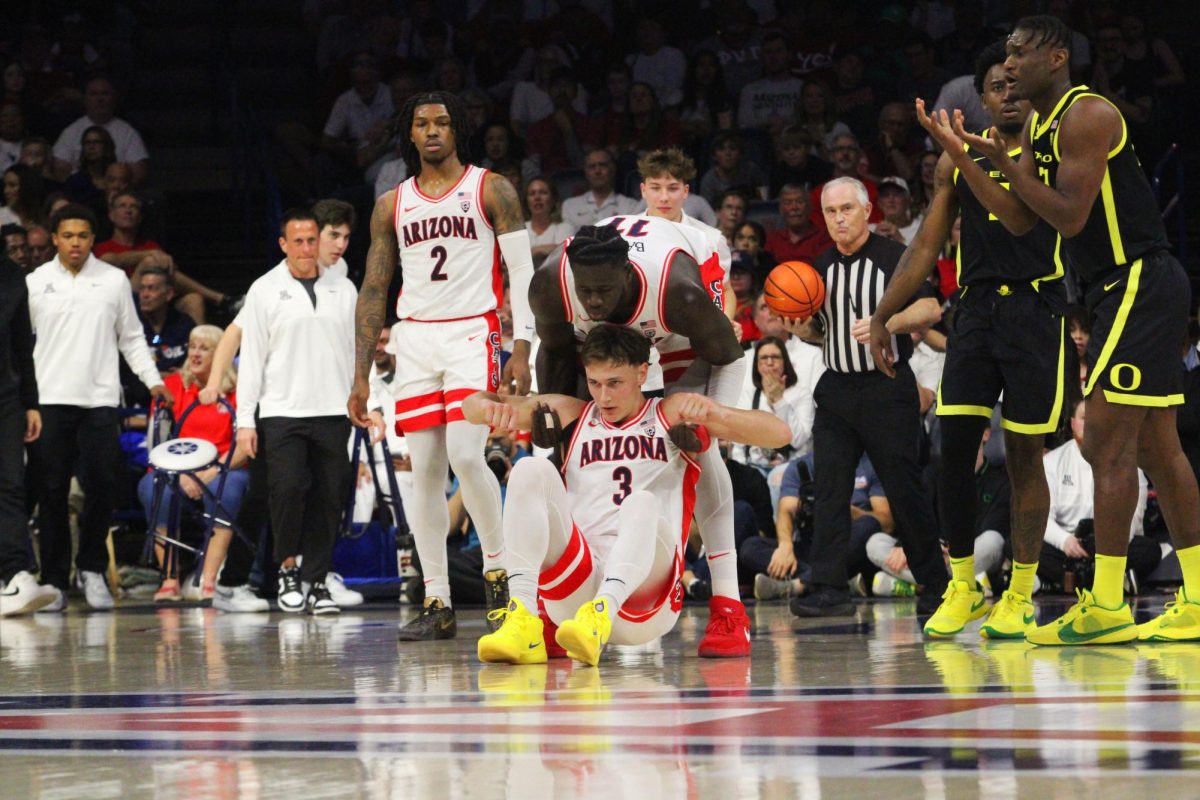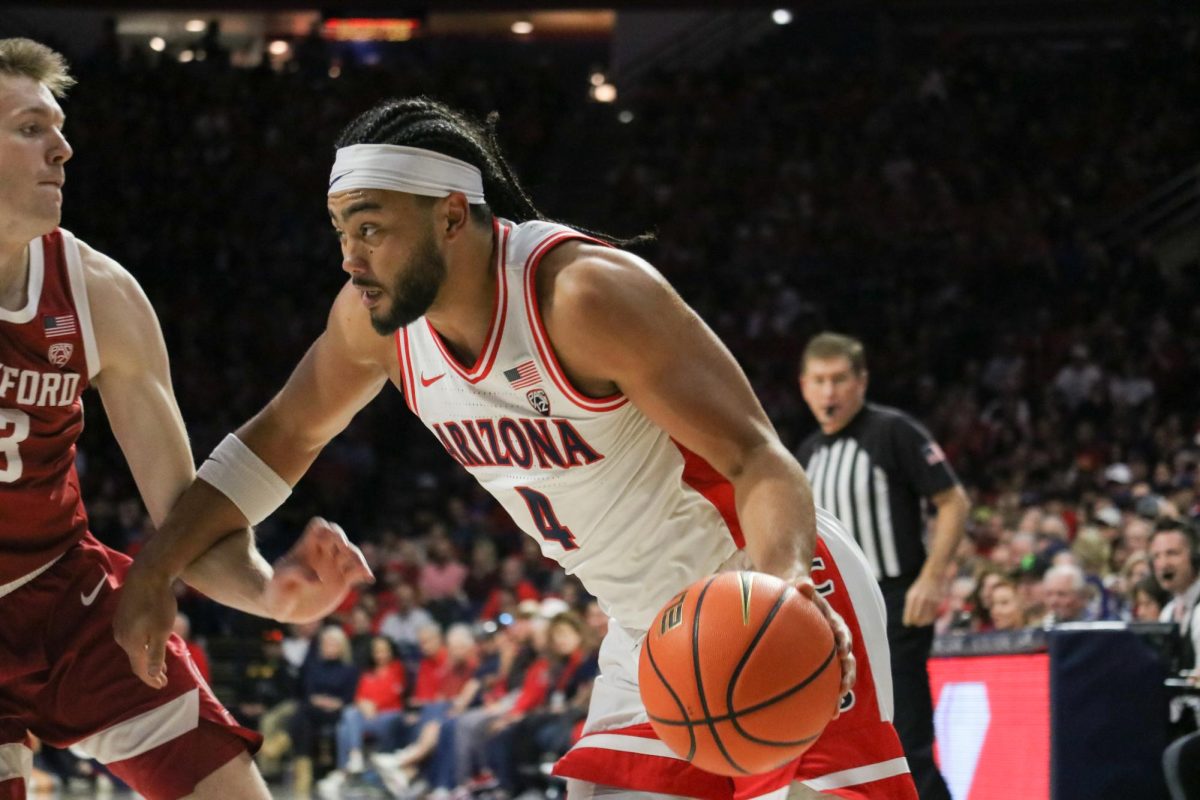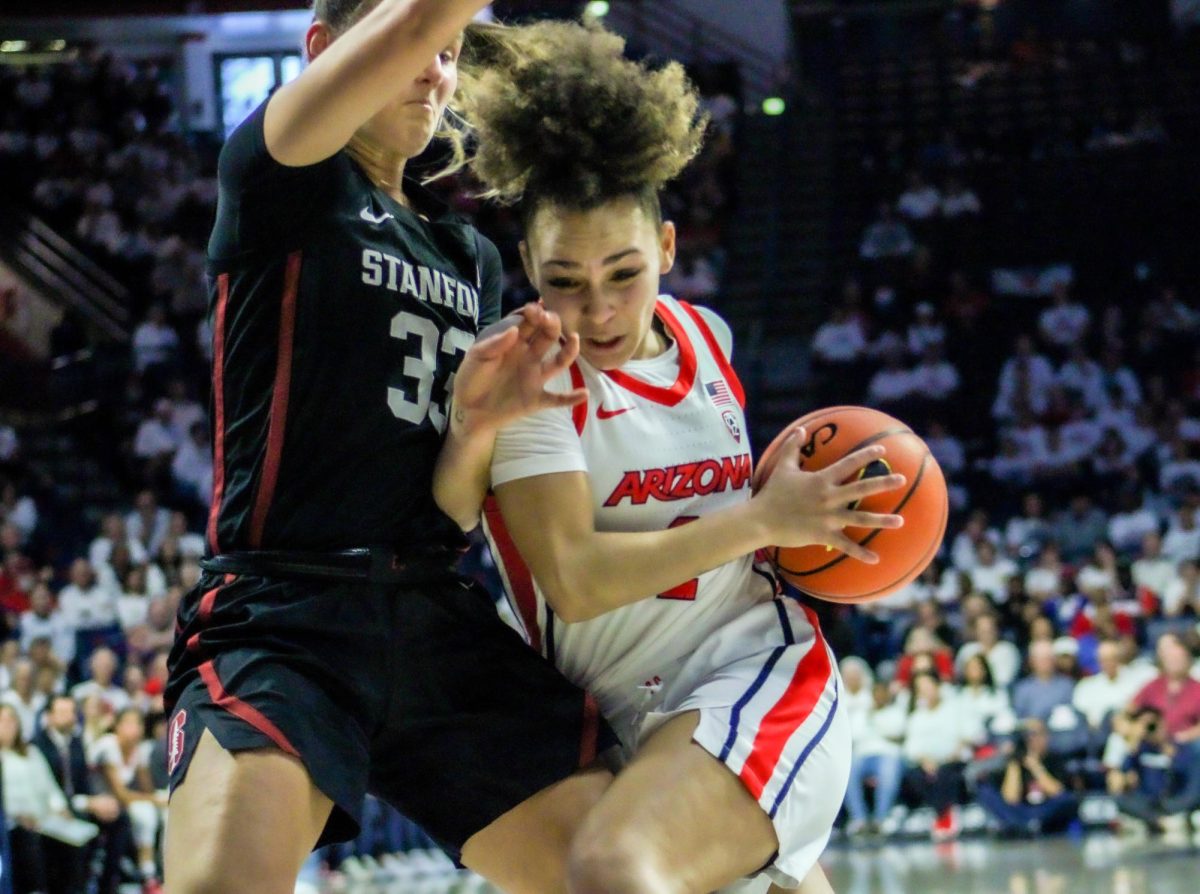It’s clear that when Jim Halpert got his business degree, he wasn’t planning on a career selling paper. His disillusionment and exasperation are some of the elements of “”The Office”” that makes it so enjoyable. But is it as funny when you think about the very real possibility that you could be Jim (minus the hilarious office hijinks and epic romance) in a few short years?
With the competition for jobs growing each year, to many, an office job is seen as a guarantor of success and solvency. Author Camille Paglia describes this phenomenon as competing for “”claustrophobic ‘prestige’ jobs in sterile corporate offices, where high salaries drug the worker clones from recognition of their own imprisonment and castration.”” Yikes. The problem with viewing a university degree as another stop on the way to Careerville is that we focus on our vocational needs at the expense of our education.
To illustrate my point, I’m going to pick on Eller. Sorry, guys. Here’s the thing: Multitudes of bright, driven, interesting men and women seek and earn degrees in business. The problem is, I don’t believe that Eller adequately encourages its students to seek graduate degrees and diversify their education. The National Institute of Education conducted a study in which they ranked the performance by Bachelor of Arts and Bachelor of Science students on both the GMAT (admissions test for M.B.A. programs) and LSAT (admissions test for law school). Business majors finished 19th out of 19 disciplines for the GMAT and 19th out of 22 for the LSAT. What’s the problem here?
It’s probably not that business majors are all idiots – everyone knows that idiots major in theatre arts. I certainly don’t believe that a degree in business is by any means worthless, and insulting Eller students is certainly not my objective. The dangerous thing is that we feel like we have only one chance to get it right – and if we don’t pick the right major, we’re unequivocally screwed. ( … That’s what she said. Sorry, in a column with an “”Office”” reference, did you really think I would refrain?) For many, this means declaring a major immediately with a clear through-line to career opportunities right out of school, like finance or engineering.
But hardly anyone ends up working in a field directly related to their undergraduate studies, and university education shouldn’t be treated as strictly vocational. Placing too high a premium on the importance of an undergrad degree discourages people from going to grad school because, for example, they believe that they don’t have the right skill set to take the GMAT without a business degree. However, a study by AT&T demonstrated that once hired for beginning managerial jobs, arts and science majors advanced at a faster rate than their colleagues, with 43 percent of liberal arts graduates in upper middle management compared with 32 percent of business majors after 20 years. In a job market where bachelor’s degrees are worth less each year, getting a M.A., M.S., Ph.D. or M.B.A. in many fields is where the real money is, offering much more opportunity for career advancement.
It’s a shame to discourage students from applying to those programs because they feel like they didn’t study the “”right”” thing in school or they feel that their undergraduate degree is already a ticket to a six-figure salary.
While graduate school certainly isn’t right for everyone, students can and should also diversify their undergraduate studies. The responsibility for diverse curricula doesn’t just lie with individual colleges like Eller – the entire university ought to vary its graduation requirements in a meaningful way. This is supposed to be why we have general-education courses. But those classes are not designed to provide students with the same teacher-to-student ratios and in-depth study that they can get in major-specific courses. Even as a sophomore I’ve already received the “”I know you guys are here to fulfill a requirement, but try to pay attention, anyway”” speech at the start of several of my gen-ed courses. Inspiring, right?
One way to turn these classes from an annoyance into genuine exploration is by requiring undergraduates to have a major and a minor. Students can still study whatever they choose while also genuinely branching out, taking smaller, more challenging and more in-depth courses in areas that they might otherwise feel they don’t have time for, or don’t lead directly to a job outside of school but are still of interest to them.
Although concern for the future is vital, students shouldn’t lose sight of the opportunity that a university education offers: to pursue whatever interests they have. You would be hard pressed to find a better arena for studying the arts, languages, biochemistry, poetry and accounting all in one place. Students should focus on the career that they want, but not at the expense of their other passions. This way, “”The Office”” will remain entertainment rather than autobiography.
Sarah Devlin is a sophomore majoring in English and political science who will probably be living in a box in five years, so what does she know? She can be reached at letters@wildcat.arizona.edu.



